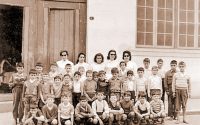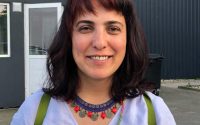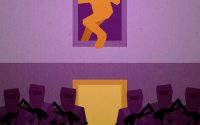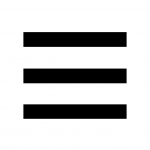Kurdistan // Documenting barbarity and resistance in Rojava~ 11 min
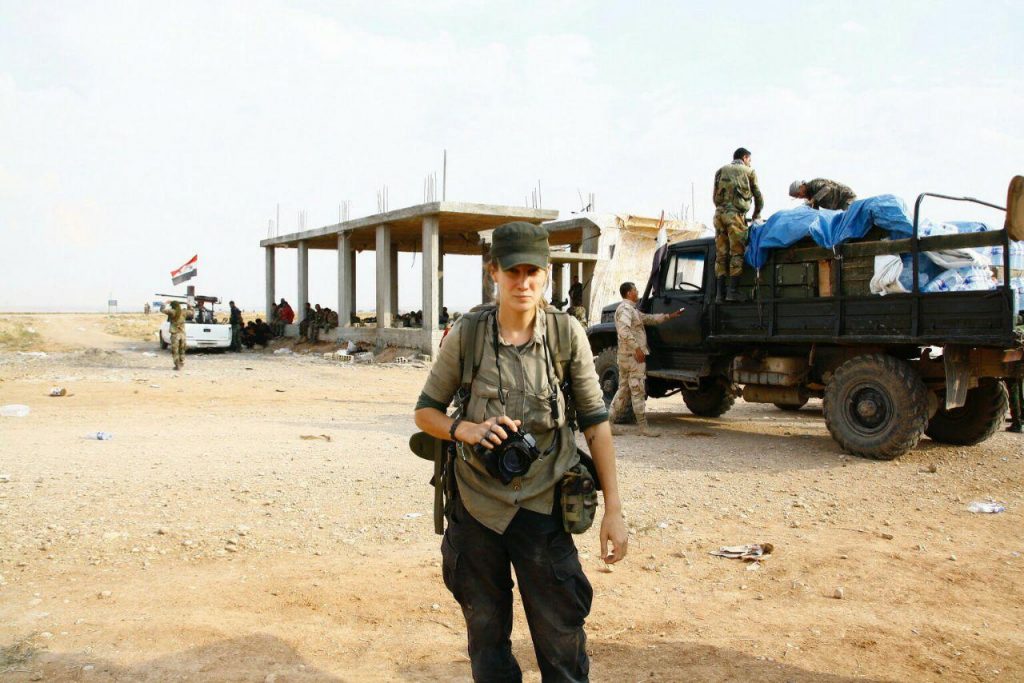
Bruno Garrido // On October 9 the operation to occupy Rojava began. How is the resistance faring so far?
Rok Brossa // The resistance situation is tough, no doubt. We are seeing a different front than the YPG/YPJ are used to. These units were formed to combat the Islamic State. Now we find a battlefront we had previously faced in Afrin. It’s a front where, on the one hand, you have NATO-sponsored high-tech military – fighter planes able of bombard anywhere in the territory, we’re talking about drones that can bomb from a distance, armored vehicles, tanks – and an infantry led by Islamist groups paid by the Turkish regime.
They are sadists who, from the videos we have seen, feel no remorse when executing civilians, decapitating or mutilating women’s bodies. Barbaric actions we had seen again and again with al-Qaeda, the Daesh, al-Nusra. They are the same soldiers who now, supported by the Turkish flag, apply the same slaughter in Rojava.
It is a tough front, and different international agreements are also causing uncertainty on the front lines. First the withdrawal of US forces, then the agreements with Russia. Undoubtedly, the population is suffering the worst: the number of refugees is tremendous. Where we are now, at Tel Tamir school, the pavilions are full of people on the run.
As in Afrin, Turkish forces are attacking water and communication infrastructure. The civilian population is suffering very harshly and cruelly, especially those forced to flee, and now have their homes occupied and looted by Islamist groups with whom Erdogan intends to implement his law and order, to expand the Ottoman empire that he dreams so much about.
BG // Between the American desertion, the preliminary agreements with Assad and Russia, it is once again proven that the mountains are the only friends of the Kurdish people…
RB // Undoubtedly, international agreements are playing a central role. It damages the Rojava revolutionary process and society. We have seen how the US has betrayed all its promises to stop Turkish advances. We have seen that Russia has an interest in pushing Turkey away from NATO, and is therefore willing to accept various contradictions. Pulling Turkey out of NATO’s orbit is a powerful blow to the West.
In the end we talk about a war of many levels. On the one hand, we have the local war of the different groups fighting to defend the territory; we also have a political war, a redefinition of the Middle East – big powers like Turkey or Iran are taking big positions. Then we also have the struggle for control of Middle East hegemony between Russia and the USA.
The Kurdish people have been sacrificed and used as a bargaining chip between the different actors. A situation that has always happened throughout history. However, it is not certain that they have only the mountains as friends. We are seeing this great international mobilization, we have seen demonstrations around the world.
When you make a revolution against patriarchy, against capitalism, against the nation state, you cannot count on other states supporting you. So we knew from the outset that the Rojava revolution was a risky step, but a revolution has never been an easy path. Rojava prepared itself as best it could to face these days. The self-defense forces are ready and we will try to defend this project at all costs.
BG // Evidence of war crimes committed by salafist groups and the Turkish army continues to appear. If we look to the West, the silence on these topics is widespread.
RB // We see that in Europe, in some countries, there were statements of condemnation, but in the end it is just that. We are talking about a global system of nation-state hegemony, which will always support each other. The hegemony of the nation-state model is based on accepting only structures similar to theirs, so that any project that challenges the hegemony of this model will be the enemy of any state. Additionally, Turkey is a very important state in economic terms. We must not forget that they have been at the EU’s door for many years, commercial trade with Europe has a lot of influence.
The International Community will not really push to investigate the war crimes that Turkey is committing. There are medical reports by Dr. Abbas Mansouran, an internationalist doctor who has spent many years in the field. In that report it is clearly stated that the type of burns the population is suffering from are derived from chemical weapons [white phosphorus]. We do not know to what extent these crimes will truly be investigated. There are already difficulties on the part of the International Community in starting the investigation, so we know we can’t count on them to stop this war, just to make good statements… go nowhere.
What matters to us is that the revolutionary movements and the people who are willing to show their support remain on the streets, continue to show refusal to accept this military occupation. When we talk about building an internationalist revolution, we know that we cannot count on the States, we must count on the peoples and on solidarity between peoples.
BG // What about ceasefire that never left the paper…
RB // The supposed ceasefire of 150h coordinated first by the US, and later by Russia, never existed at all. It was a warning to Turkey not to go further than what had been agreed. Given that any major military operation in Syria are always agreed upon beforehand by the two great powers, no step is taken that had not been previously agreed.
That is why the meetings and negotiations that took place prior to the Spring Peace operation were decisive in delimiting Turkey’s radius of action. We saw that the day before, the Americans withdrew. So this ceasefire is just to warn Turkey that it needs to slow down a bit, but it can continue to bomb, massacre and assassinate the civilian population. There hasn’t been a day when the bombing stopped.
BG // What are the options for the Rojava revolutionary project in light of the scenario of reintegration into the Syrian state? Are there elements of the project that will endure or are there major setbacks foreseen?
RB // The deal with the Syrian state is another twist in the events, something that has been forged for several years now. Already in Afrin, there were also diplomatic contacts and negotiations. The Democratic Federation of North and East Syria has made it clear that it wants to build a project in Syria, to build a democratic Syria and [that it] wanted to defend the territory.
This inevitably includes negotiations to democratize the Syrian state. This doesn’t have to mean war, it is obvious that the nation-state model is very dear to totalitarian logics all over the world, more evident in some countries than others. The centralist model that the West imposed on the Middle East, with this nation-state model based on colonialism, as was the Sykes-Picot agreement that is now little more than a century old. It is a model that does not fit the reality of the Middle East’s population.
This European model of a state, a flag, does not even work in Europe, much less in multiethnic and multi-confessional societies. What is pursued are agreements that allow democratic coexistence within Syria. The agreement with the Syrian state will mean having to negotiate, having to give up certain things, but also make progress.
For example, it is said in these agreements that the SDF will be part of the Syrian Arab army, and that would be a step which would change the Syrian state. Now not even the state can deny Kurdish identity. We see in Bashar al-Assad’s statements that he refers directly to Kurdish people, something that did not happen before. The mere fact of entering the national army already raises questions.
As its name is the “Syrian Arab Army”, once Kurdish, Assyrian, and other identities are integrated, those same people would have to be recognized and this is a bit of a start of negotiations. The Administration of North and East Syria has managed to build a project of autonomy that the state is being forced to recognize and this in itself is also a democratization of the state. First we need to deal with this Turkish invasion and then we need a political negotiation with Damascus and to understand how this restructuring might happen.
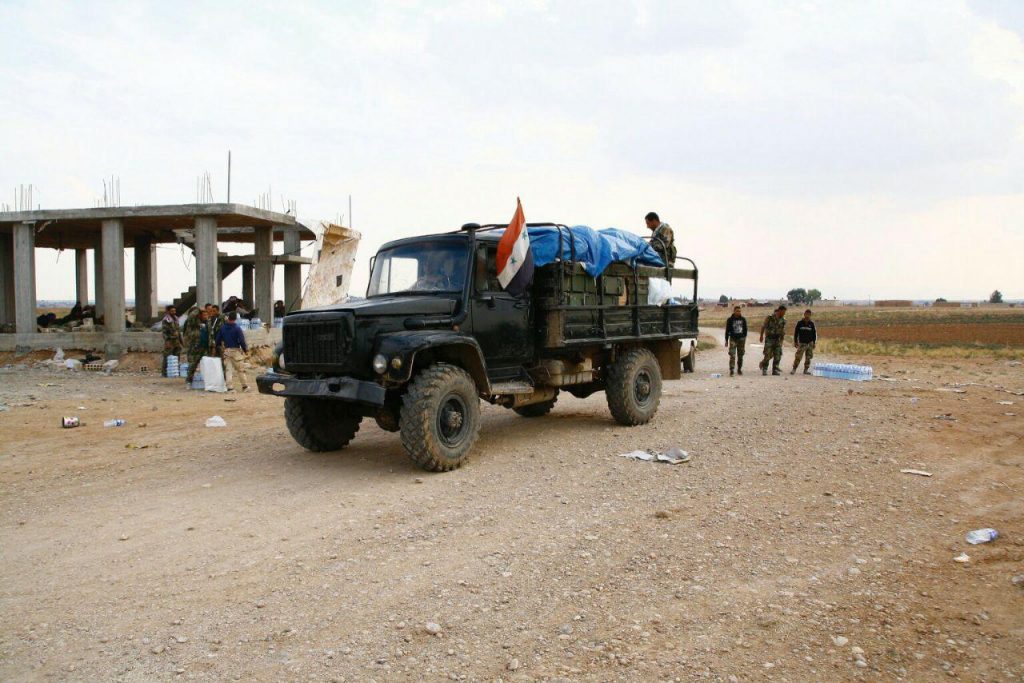
BG // And about projects like Make Rojava Green Again and Jinwar Women’s Village?
RB // The three pillars of Democratic Confederalism are social ecology, women’s liberation and communal democracy. These are non-negotiable points when developing a democratic society. And it is important to develop them at a practical level. No doubt Jinwar is a pioneering example in all these respects. With the MRGA campaign, we not only have the reforestation project with which we started the campaign, but in recent months we are dealing with topics such as water recycling and we have a solar energy pilot project. These are very important projects when developing the Rojava revolution.
But obviously when the war begins, it’s hard to keep up those works. When bombs fall it’s hard to think of ecology. Even Jinwar had to be evacuated due to its proximity to the border. Turkish tanks are already parked near there.
It is important to keep this work, we will continue to inform about the situation of Jinwar and MRGA. Right now the focus is on stopping Turkey’s military occupation.
BG // Through the resistance diaries, you and other internationalists have traveled through different villages and war zones. The images of the resistance diaries are devastating, how do you find those who are resisting there?
RB // The resistance diaries are a project which had already begun with the occupation of Afrin. We intend to document and inform above all about the situation of the civilian population in the face of these military occupations and attacks. The images we see are very heavy.
We try to cover the different aspects of the humanitarian crisis that these attacks cause. From the huge number of internally displaced people to the medical situation of hospitals that function however they can. We try to expose and document the daily life and what it means to live under military occupation. Every day there are villages which have to be evacuated. People who get murdered and it becomes hard to find the time to process all the documentation we have. Difficulties with the internet, with continuous power cuts, don’t help either.
Here in Tell Temir, even in the face of all adversity, Kurdish families are tireless in the way they welcome us. The conditions that they give us to do our work are extraordinary. Part of the process is also spending time with them and understanding what reality is like for these families. We also have a lot of uneditable documentation, but in the future we will share all the material we are recording and collecting.
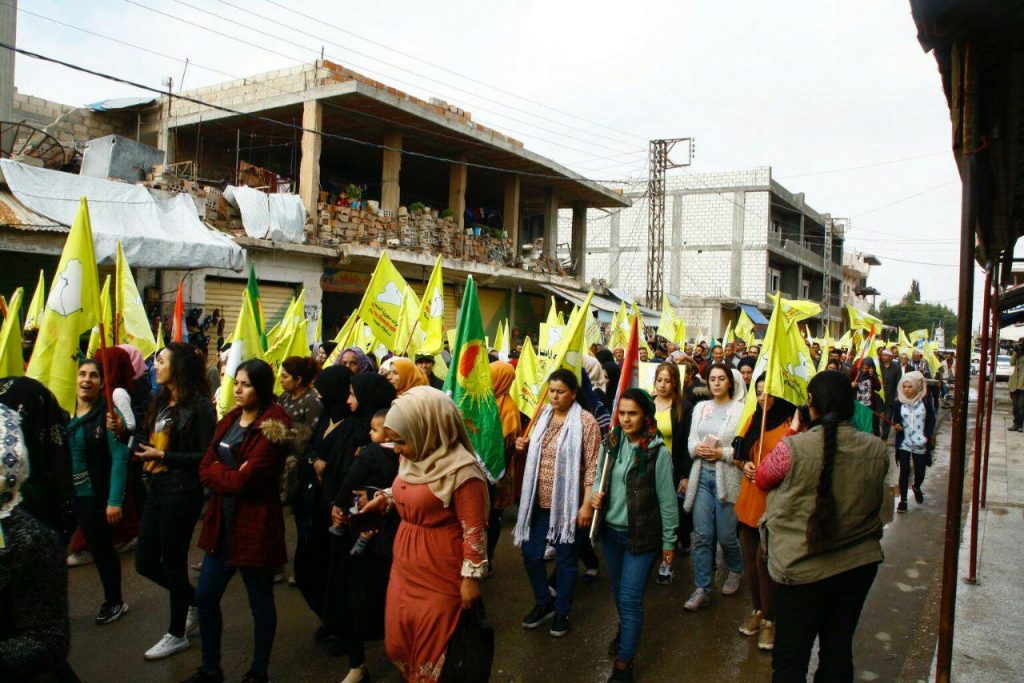
BG // Any message you want to leave to those who have been out in support of the RiseUp4Rojava campaign?
RB // After November 2 and the success of the Global Resistance Day, we decided to make a new global call for union with the Rojava resistance. We made a short video where various internationalists in different fields of Rojava tell us what is happening.
It is important to defend this project as a source of inspiration for various collectives and political organizations around the world. It is important to think and imagine what kind of society we have to build and not just leave it at the theoretical level, we have to put it into practice. It is important to learn what it means to build a revolutionary process.
This means finding the contradictions and difficulties that arise, and so here we are. What is being built in Rojava is a new chapter in the history of revolutionary internationalism. In the past we can see some similar movements with the Spanish civil war and, more recently, we undoubtedly have to talk about the milestone created by the Zapatista revolution.
The call is to maintain solidarity, this hope, and to support the defense of a revolution that can open up a new world.

